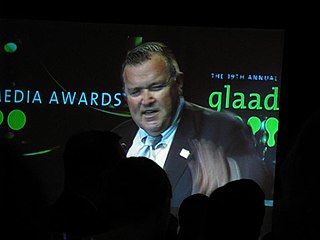A Quote by Elton John
If people are encouraged to come out and say they're HIV-positive and they're given their treatments, then obviously, the people who are marginalized - like intravenous drug users, prisoners, people are made to feel less-than - if they're given the support of the government, and they're given the funding, then it's going to help solve the spread of AIDS and HIV in America.
Related Quotes
You know, no one should be marginalized in society when it comes to health. And, you know, we have - as a foundation, we have tried to champion those people [sex workers, needle users, intravenous drug users, prostitutes] and be by - be by their side and say, listen, these people cannot be forgotten. If you forget about them, then the disease is never going to go away.
Drug warriors' staunch opposition to needle exchanges to prevent the spread of HIV in addicts delayed the programs' widespread introduction in most states for years. A federal ban on funding for these programs wasn't lifted until 2009. Contrast this with what happened in the U.K. At the peak of the AIDS epidemic in the mid-1990s, the HIV infection rate in IV drug users in the U.K. was about 1%. In New York City, the American epicenter, that figure was 50%. The British had introduced widespread needle exchange in 1986. That country had no heterosexual AIDS epidemic.
I spent the past week here in India getting a sense of the reality of HIV and AIDS in people's lives. Fathers and mothers are dying, leaving children with no support. Stigma and discrimination is ruining the family lives. There is an urgent need for education, information, and increased awareness of HIV and AIDS. The response needs to be now. We cannot afford to become fatigued.
We're [Clinton Foundation] trying to get rapid tests that give you results when you're right there on site at an affordable price. Ninety percent of the HIV-positive people in the world don't know they have the infection. An enormous amount of infections are being perpetrated by people who don't know they themselves are HIV positive.
If all people are unique, and if they are constantly changing each and every day, then all one can say about any social research finding is that it applied to that group of people on that given day, and given the propensity of humans to be different and to change, then it is unlikely that one would get the same results if one were to repeat the study.
Let's face it, fashion was destroyed by HIV. People would just die like flies in the eighties. Then, my brother died of HIV, so I was shaken by it in a way that you cannot imagine. It has sadly been in my life ever since and affected it for such a long time. It won't let go. To me, it's a fight that's not finished. Of course, there are medicines that help, but half the world has no access to them.



































